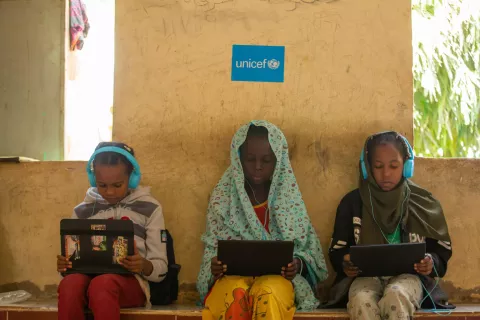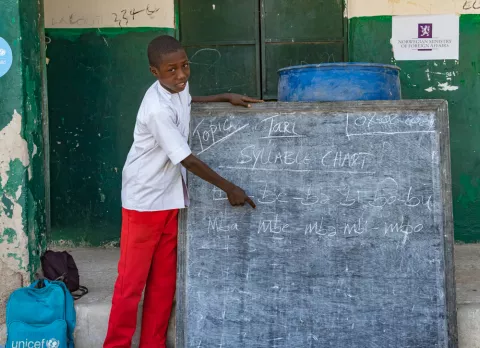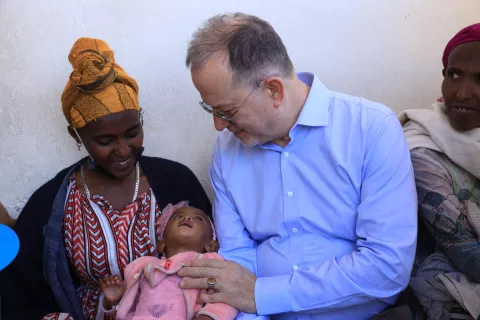Zambia: Smarter data, better schools
How user-friendly data is mobilizing communities for better quality education.

KASAMA, Zambia ─ Elvis Musonda always knew where his five children would go to school – he lives right next to Malama Primary School in Zambia’s Northern Province.
It’s one of the few primary schools in the area and demand is high. The school caters for around 3,000 students, but funding is only around 1 Kwacha (US$0.08) per child per year.
“There are too many students in a class… up to 100,” says Elvis. “Teachers focus on fast learners and most children feel neglected.”
Driven by his wish to see that his youngest child, a current student, would not fall behind, Elvis decided to take action. He volunteered to be an advocate for children’s education and joined the school’s Parent Teacher Association. And that’s where the school profile cards came in.
“What keeps me going is seeing a child getting educated.”
Making data usable
For a long time, teachers, parents and communities could not compare their own school’s performance with others’. But with school profile cards things have started to change.
Developed by the Ministry of General Education with support from UNICEF, the school profile cards give a detailed overview of the challenges schools are facing, mapping out where needs are greatest. Designed with the help of parents and school teachers, the cards enable school leaders to identify gaps and track progress ─ while giving Elvis and other parents the information they need to demand a better education for their children.
“The school profile card paints a more objective picture of how we are doing compared to other schools,” explains Elvis. With a glance at the card, you can see that learning outcomes in Malama Primary for English, Science and Maths are well below those of other schools in the district. “The cards are on display in the head teacher’s office and on the school notice board,” says Elvis. “We made about 100 copies. Both parents and teachers look at them.”
Aware of the pressing challenges at Malama Primary that were revealed by the profile cards, the Parent Teacher Association called for an extraordinary meeting. Nearly 800 parents showed up.
At the meeting, Elvis used the profile cards to help parents understand the barriers to improving learning at the school. The cards allow data to speak to all parents, regardless of their literacy level. “I explained the symbols one by one for all parents to understand the challenges and progress of their children’s school,” Elvis says.

Transforming data into action
Realizing the magnitude of the problem from the data they had, the Parent Teacher Association wrote more than 30 letters to political leaders and businesses in the district, requesting support. And parents asked school leaders to help weaker students.
Their actions are having an impact and there is progress. Malama Primary is now offering catch-up classes to students who are behind in the subjects identified in the profile cards. “We decided we should give extra help to the students who still cannot read or write,” Elvis says with a smile. “The school profiles helped us to engage parents and we managed to do something to improve the education of our children.”
School profile cards are part of the Data Must Speak initiative, supported by UNICEF in eight countries across the globe, and adopted by the Ministry of General Education in Zambia.
Find out more about many initiatives that address the role of parents and caregivers in children’s learning in Eastern and Southern Africa in our expert piece and our Think Education series.




